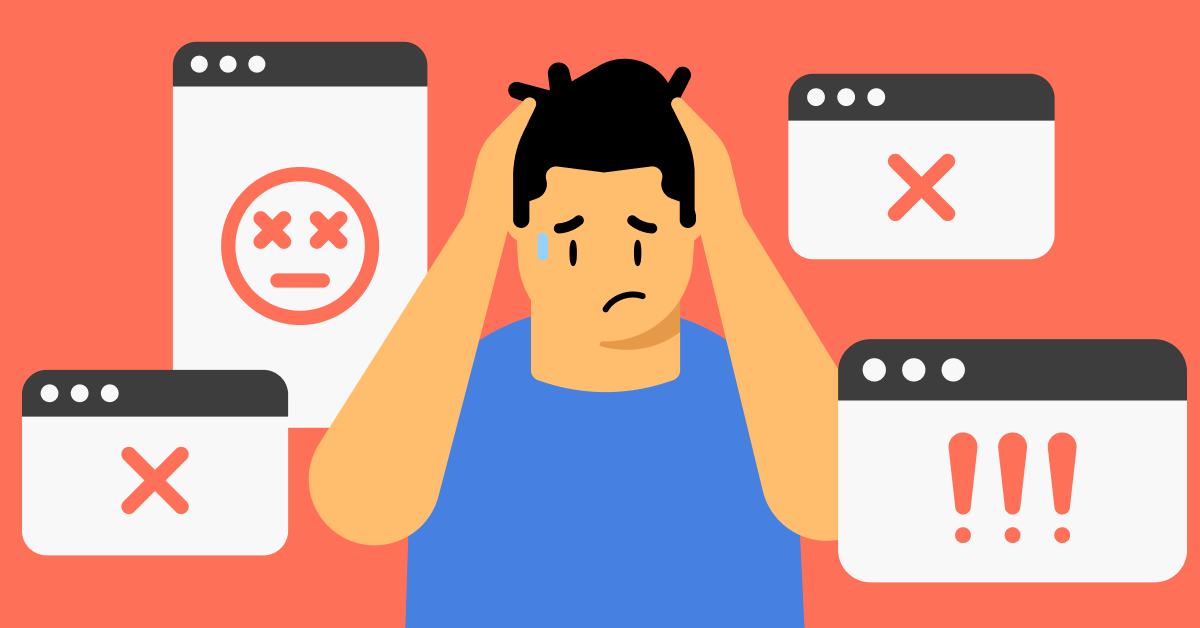Is the Brave browser safe and secure?
If you’re in the market for a secure browser, you may have come across Brave. In this Brave browser review, we’ll cover everything you need to know about Brave — from why it came about to its top security features. We’ll dig into whether it does as much as it says for user privacy — and most importantly, whether it’s a secure browser option.
What is the Brave browser?
The Brave browser is a relatively new privacy-focused browser offering an array of automatic security features. From tracker and ad blocking to private search and even a VPN, the Brave browser is at the forefront of advanced browser security.
The idea behind Brave is to empower users to take privacy into their own hands. Brought into existence in 2016 by the developers of JavaScript and Firefox, it claims to offer more transparency, privacy, and security to internet users.
Because Brave blocks most third-party trackers and ads automatically, it also allows web users to escape the cycle of Big Tech companies using browsers to collect, sell, and utilize their data.
Brave is free and built off the open-source Chromium Web core. Like with other Chromium browsers, anyone can look up its code and use it to create even more privacy-focused and secure browsers.
The web browser comes with some extras, like Brave Rewards — a program that allows users to earn cryptocurrency tokens by agreeing to see some ads. There’s also a browser-native crypto wallet for buying, keeping, sending, and swapping crypto.
The Brave browser: strengths and weaknesses
One of the best things about the Brave browser is that it protects user privacy by default. Brave automatically blocks ads and ad trackers to protect users from annoying and potentially malicious ads.
In addition to blocking ad tracking, it safeguards users from cross-site cookie tracking, bounce tracking, fingerprinting, phishing, and malware attacks. You can also see what Brave blocks, which is quite satisfying — just click the Brave Shields icon in the address bar.
Furthermore, the Brave browser has a built-in password manager and automatically upgrades your connection to a more secure HTTPS. Considering everything it offers, you could say it’s up there as a security and privacy-focused browser.
Brave also has its own search engine, Brave Search, which allows you to do private searches without a trace. Brave positions this search engine as the “real alternative to Google,” potentially appealing to those looking to de-Google their online activity.
However, like many other browsers, Brave isn’t perfect. It has recently come under fire for showing persistent online ads and misusing affiliate links for profit.
Brave was caught autocompleting URLs of some sites with affiliate links, earning a commission for every visit. While this isn’t necessarily a privacy issue, it does raise questions about the transparency of the Brave browser’s business model.
This controversial feature made Brave users question whether the company is as trustworthy as it claims. Thankfully, Brave’s co-founder and chief executive, Brendan Eich, admitted this was a “mistake.” The automatic completion has now been removed, potentially restoring some of the trust.
Pros
- Offers increased browsing privacy and security
- Blocks ads, trackers, third-party cookies, fingerprinting, and bounce tracking
- Includes a password management feature
- Provides fast and optimized performance
- Built off the open-source Chromium Web core
Cons
- Criticized for an ad network based on a rewards system
- Caught misusing affiliate links
Brave browser’s features
| Security and privacy: | Tracker and ad blocking, some malware and phishing attempt blocking, enables HTTPS on websites with unsecure connections |
| Available for: | Windows, macOS, Linux, Android, iOS |
| Advanced security features: | Built-in IPFS integration; onion routing with Tor, custom search filters, reduced network server calls, partitioning, blocked bounce tracking |
| Extra features: | Password manager, Brave search engine, Brave rewards program, Brave wallet |
| Data protection policies: | GDPR and CCPA |
How does Brave compare to other browsers?
Many users may wonder whether the Brave browser is better than other browsers. Let’s take a quick look at how Brave compares to a few of the most popular web browsers.
Brave vs. Google Chrome
Brave claims it is “3x faster than Google Chrome,” which would, in theory, make it the fastest browser available. However, this claim doesn’t seem to appear anywhere else but on Brave’s website, so it’s hard to know whether it’s true.
If you’re wondering whether Brave is safer than Google Chrome, both browsers are at the top of the list for safety.
However, the difference is that with Chrome, you can increase your security with browser extensions for privacy. Brave, on the other hand, offers “privacy by default,” meaning you don’t need to tweak your settings. It’s delivering maximum internet security and privacy from the get-go.
Brave vs. Microsoft Edge
While Edge offers some protection against websites that collect information about browsing habits, its anti-tracking feature isn’t as advanced as other browsers.
On top of that, Edge is only updated twice a year, which isn’t very often. Brave is updated approximately every four weeks.
One way to make Microsoft Edge more secure is using the Edge NordVPN extension. It gives the browser the protection it lacks, blocking malicious ads and trackers.
Brave vs. Mozilla Firefox
Firefox’s Private Browsing Mode offers private browsing with tracking, malware, phishing protection, and pop-up and fingerprinting blocking. NordVPN also offers a handy extension for Firefox, allowing you to change your IP address and access Threat Protection.
However, Brave blocks ads and trackers automatically, without users having to enable anything or use an extension.
Brave is a newcomer, while Firefox is more established as a private web browser. If you’re looking for something that’s tried and tested, Firefox may be a better choice.
That said, if private browsing and safeguarding your browsing habits are paramount for you, Brave could be the secure browser you’re looking for.
Why are browser security and privacy important?
Most people don’t question their devices’ default security settings (or the default browser). But just because these are the settings it came with doesn’t mean they’re going above and beyond to keep you safe online.
A browser is your window to the online world — it handles heaps of sensitive data about you. This data is extremely valuable to internet service providers (ISPs), advertisers, government agencies, and third parties.
By tracking data on your every online move, they can better get to know you as a customer and tailor their services, prices, and offers to your preferences — boosting their revenue.
While not everyone thinks about government surveillance, in countries where the government is oppressive, the idea of the state being able to access your browsing data becomes much more concerning.
Using NordVPN with Threat Protection Pro helps keep your data and online activity more private. It hides your IP and encrypts your traffic, meaning that:
- ISPs can’t see what you do online anymore.
- They can’t sell your browsing data to government agencies.
- Cybercriminals can’t track or steal your data by intercepting your traffic via public Wi-Fi.
Using a good, secure browser and a reliable VPN leaves no security gaps, keeping you safe in your everyday life – whether you’re working remotely or enjoying an online game.
The most secure browsers don’t track your browsing data or pass it to third parties. A reliable, safe browser will also go the extra mile to protect you from malicious ads, invasive pop-ups, and fingerprinting.
So, is the Brave browser safe to use?
To sum up, Brave is a secure browser that prioritizes user privacy and security. It offers many excellent security features to keep your browsing history private, giving you more control over your data. You can trust it to protect you from ads, trackers, and other digital threats and make your browsing experience smoother and faster.
From the information available on Brave, it is evident that it doesn’t store any record of your browsing history, so users don’t have to worry about Brave stealing their data.
That said, if you opt for the rewards program, Brave will store your data – but you’re collecting rewards for it, meaning you’re effectively selling it to them.
Want to read more like this?
Get the latest news and tips from NordVPN.

